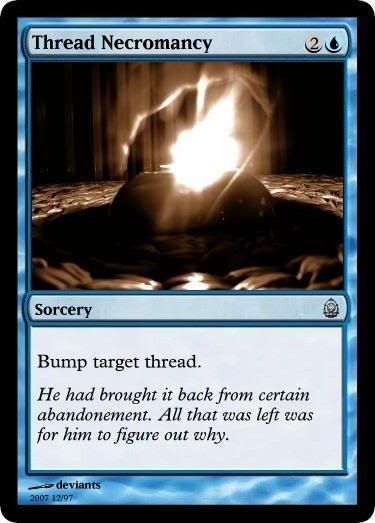You are using an out of date browser. It may not display this or other websites correctly.
You should upgrade or use an alternative browser.
You should upgrade or use an alternative browser.
D&D 5E (2014) Is Concentration Bugging You?
- Thread starter KarinsDad
- Start date
2nd Edition Player's Handbook, p.85
Note that in 2nd Ed you had to declare your action before rolling initiative for the round, so the spellcaster doesn't even get to see whether their initiative check was any good before deciding to cast, and they lose their Dex bonus to AC making them even easier to hit. And also note that any failed save causes the spell to fizzle, meaning that it was possible to cause them to lose their spell by casting Know Alignment on them.
Except that Know Alignment had a one full round casting time and would not interrupt anything, even another one round casting time spell (they would be simultaneous). But I will concede the point. I always thought that I really liked the circular initiative concept of 3E because it meant no more rolling inits every round, but I suspect that back in the day, I really liked it for spellcasters too.
I'm A Banana
Potassium-Rich
KarinsDad said:Apples and oranges. The vast majority of spell interruption in earlier editions was at the time of casting (a very limited window of time), not every single point in time after the spell is cast (a very wide window of time).
I'm not comparing anything, I'm just pointing out that spell interruption has been a part of the game since forever. This isn't the same mechanic AD&D had, but it's the same basic concept. It's not alien to the game.
...some stuff
Just a few major points, rather than going line-by-line....
- Your narrative seems to suggest an issue with Legendary Creatures more than with Concentration. Not every fight is against a legendary creature. And mot fights against Legendary Creatures should probably be approached differently than your usual goblin-fest -- these are designed to be tough encounters, so you'll need to pull out all the stops to have maximum efficacy.
- You seem to be weighed down by your perceived need to buff your melee characters. Listen: if your party fighter dumped Dex and refuses to make a ranged attack and can't bother to shove or grapple or use bits of the equipment list (like burning oil) and pretends like they don't have Second Wind and has a MASSIVE run of bad luck including getting hit by all those attacks and failing all those CON saves, from a legendary creature going balls-to-the-wall all out, they deserve to fall unconscious. And being unconscious isn't the end of the world -- slip 'em a healing potion, and they'll take another round or two of that punishment all over again. You need to be able to trust your party members to carry their own weight, ESPECIALLY in 5e. It is not your sworn duty to buff them.
- Related to this, your sensitivity about what a character "needs" to be "effective" is likely set WAAAAAAY higher than mine -- or than 5e's in general. A character with 14 Dex can absolutely contribute to a dragon-fight. A 1st-level character with a 14 Dex fighting an Ancient Red still hits on an 18+. When the alternative is to get into melee with a friggin' dragon, a ranged attack is a MUCH better option, even if it hits less often than your longsword.
Here is a typical loadout for my group (Not 100% but pretty close)..
Bard:
1. Shield, Cure Wounds.
2. Hold Person, Moonbeam, See Invisibility
3. Counterspell, Dispel Magic, Revivify
4. Polymorph, Banishment, Greater Invisibility.
5. Hold Monster, Wall of Force
6. Wind Walk, Greater Restoration, Otto's Irresistible Dance
7. Magnificent Mansion, Regenerate
Very Common Casts: Vicious Mockery, Moonbeam, Hold Person, Shield.
Common Casts: Counterspell, Wind Walk, Greater Invisibility, Banishment.
The bard has a lot of concentration spells, and mostly uses Moonbeam. However he can also be niggly to hit due to Cutting Words + Shield. After almost killing him a couple of times, he takes great care of positioning now, making sure to put full cover between him and foes.
Wizard:
1. Magic Missile, Shield
2. Mirror Image, Scorching Ray, See invisibility, Hold Person, Misty Step
3. Fireball, Counterspell, Dispel Magic, Blink
4. Banishment, Evard's Black Tentacles, Wall of Fire
5. Bigby's Hand, Wall of Force
6. Chain Lightning, Sunbeam
7. Forcecage, Teleport
Very Common Casts: Firebolt, Acid Splash, Shield, Fireball, Detect Magic (R)
Common Casts: Hold Person, Counterspell, Banishment, Wall of Fire, Wall of Force, Sunbeam
The Wizard is often casting cantrips and fireballs, but he does cast a few concentration spells when the going gets tough. It's very difficult to break his concentration when he has it due to Arcane Ward.
Cleric:
Domain Spells:
1 Burning Hands, Faerie Fire
2 Flaming Sphere, Scorching Ray
3 Daylight, Fireball
4 Guardian of Faith, Wall of Fire.
Prepared Spells:
1 Cure Wounds, Healing Word, Bless
2 Silence, Spiritual Weapon
3 Mass Healing Word, Protection from Energy, Spirit Guardians, Revivify
4 Death Ward, Banishment, Freedom of Movement
5 Greater Restoration, Dispel Evil and Good, Mass Cure Wounds
6 Word of Recall, Heal
7 Etherealness
Very Common Casts: Sacred Flame, Bless, Fireball, Spiritual Weapon, Death Ward
Common Casts: Banishment, Spirit Guardians
Cleric basically uses her concentration slot for bless, spiritual weapon is a very efficient damage boost that doesn't require concentration, and her potent sacred flame does a lot of damage. She takes care of positioning and uses her warding flare to stop monsters breaking her or other party members concentration.
Other considerations:
I use Roll20 with dynamic lightning. This means monsters don't have god mode vision and can only attack what they can see. I also create maps that have a lot of cover and terrain features such as this:

Bard:
1. Shield, Cure Wounds.
2. Hold Person, Moonbeam, See Invisibility
3. Counterspell, Dispel Magic, Revivify
4. Polymorph, Banishment, Greater Invisibility.
5. Hold Monster, Wall of Force
6. Wind Walk, Greater Restoration, Otto's Irresistible Dance
7. Magnificent Mansion, Regenerate
Very Common Casts: Vicious Mockery, Moonbeam, Hold Person, Shield.
Common Casts: Counterspell, Wind Walk, Greater Invisibility, Banishment.
The bard has a lot of concentration spells, and mostly uses Moonbeam. However he can also be niggly to hit due to Cutting Words + Shield. After almost killing him a couple of times, he takes great care of positioning now, making sure to put full cover between him and foes.
Wizard:
1. Magic Missile, Shield
2. Mirror Image, Scorching Ray, See invisibility, Hold Person, Misty Step
3. Fireball, Counterspell, Dispel Magic, Blink
4. Banishment, Evard's Black Tentacles, Wall of Fire
5. Bigby's Hand, Wall of Force
6. Chain Lightning, Sunbeam
7. Forcecage, Teleport
Very Common Casts: Firebolt, Acid Splash, Shield, Fireball, Detect Magic (R)
Common Casts: Hold Person, Counterspell, Banishment, Wall of Fire, Wall of Force, Sunbeam
The Wizard is often casting cantrips and fireballs, but he does cast a few concentration spells when the going gets tough. It's very difficult to break his concentration when he has it due to Arcane Ward.
Cleric:
Domain Spells:
1 Burning Hands, Faerie Fire
2 Flaming Sphere, Scorching Ray
3 Daylight, Fireball
4 Guardian of Faith, Wall of Fire.
Prepared Spells:
1 Cure Wounds, Healing Word, Bless
2 Silence, Spiritual Weapon
3 Mass Healing Word, Protection from Energy, Spirit Guardians, Revivify
4 Death Ward, Banishment, Freedom of Movement
5 Greater Restoration, Dispel Evil and Good, Mass Cure Wounds
6 Word of Recall, Heal
7 Etherealness
Very Common Casts: Sacred Flame, Bless, Fireball, Spiritual Weapon, Death Ward
Common Casts: Banishment, Spirit Guardians
Cleric basically uses her concentration slot for bless, spiritual weapon is a very efficient damage boost that doesn't require concentration, and her potent sacred flame does a lot of damage. She takes care of positioning and uses her warding flare to stop monsters breaking her or other party members concentration.
Other considerations:
I use Roll20 with dynamic lightning. This means monsters don't have god mode vision and can only attack what they can see. I also create maps that have a lot of cover and terrain features such as this:

I hate concentration. All of the fun that I got out of spellcasting was in the challenge of using spells in creative ways in a variety of situations. Unfortunately those situations are usually combat because dnd loves its combat, so then the fun is in buffs, debuffs, illusions, terrain alterations, etc. all those spells are concentration now, so you can only cast one. It turns spell casting classes from a versatility and creativity exercise into just another dps maximizing exercise.
Charlaquin
Goblin Queen (She/Her/Hers)
CleverNickName
Limit Break Dancing (He/They)
Charlaquin
Goblin Queen (She/Her/Hers)
My current campaign has a wild magic sorcerer, and her player and I agreed that this, along with natural 1s on spell attacks and opponents rolling natural 20s on saves against her spells, will trigger her wild magic surges.We've long used a houserule that if a spell ends because you lost concentration, you roll on the Wild Magic table for a mishap. It's made for some really interesting (and memorable) battle scenes.
Welcome to the forums, @Kmetzker !
neobolts
Explorer
Our house rule is to allow multiple concentration spells but each with different targets, which allows most strategic play without cheesing buffing:I recently put together a Paladin for 5E and noticed that many of the spells requires Concentration.
I get the whole "prevent massive buffing" reasons for the rule, but I think that WotC went overboard with that.
I might add a house rule that allows multiple concentration spells, but increases the DC by 2 for each spell the caster is concentrating on if hit.
Two concentration spells up? Make two DC 12 (or half damage +2) concentration checks, one for each spell.
Three concentration spells up? Make three DC 14 (or half damage +4) concentration checks, one for each spell.
Yes, this type of house rule shifts the balance of power to casters a bit, but I basically figure that everyone and his brother is a caster in 5E anyway, might as well help most everyone out. Pros and Cons to this as well (i.e. one attack can take out multiple spells, this results in PCs casting more spells and having fewer for later, etc.).
Can anyone think of an alternative house rule that might work too?
House Rule - Concentration Spell Variants
- A caster can maintain as many concentration spells as they want, but each must target a different creature, area, or object. Only one summoning-type concentration spell can be active.
- Checks to maintain a concentration spell are only triggered when the caster is critically hit. The check is always DC 15 v CON. It is rolled separately for each concentration spell active.
Similar Threads
D&D 5E (2024)
The Problem with Treantmonk's Hunter's Mark
- Replies
- 114
- Views
- 5K
- Replies
- 2
- Views
- 2K
- Replies
- 36
- Views
- 14K
- Replies
- 6
- Views
- 872
Recent & Upcoming Releases
-
June 18 2026 -
October 1 2026



